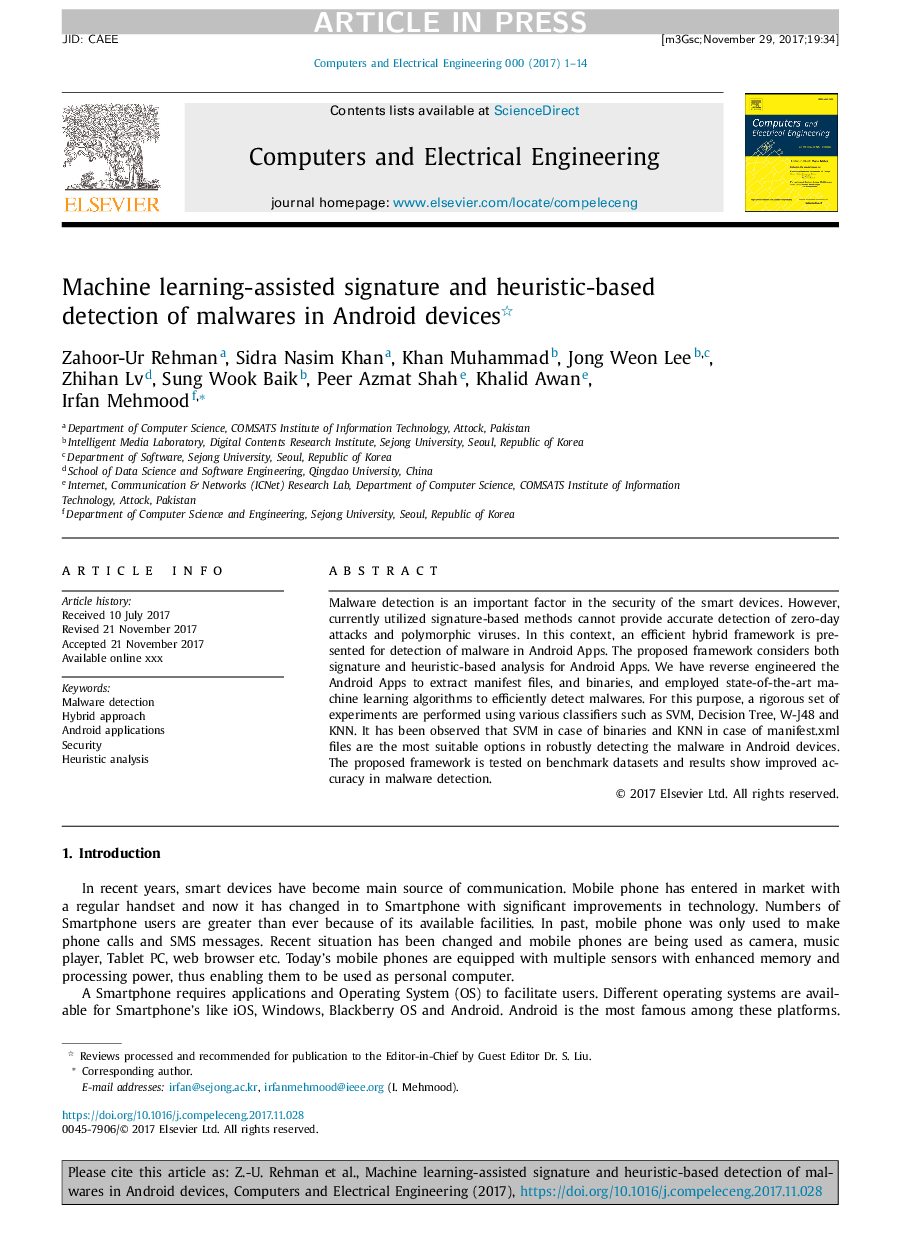| Article ID | Journal | Published Year | Pages | File Type |
|---|---|---|---|---|
| 6883335 | Computers & Electrical Engineering | 2018 | 14 Pages |
Abstract
Malware detection is an important factor in the security of the smart devices. However, currently utilized signature-based methods cannot provide accurate detection of zero-day attacks and polymorphic viruses. In this context, an efficient hybrid framework is presented for detection of malware in Android Apps. The proposed framework considers both signature and heuristic-based analysis for Android Apps. We have reverse engineered the Android Apps to extract manifest files, and binaries, and employed state-of-the-art machine learning algorithms to efficiently detect malwares. For this purpose, a rigorous set of experiments are performed using various classifiers such as SVM, Decision Tree, W-J48 and KNN. It has been observed that SVM in case of binaries and KNN in case of manifest.xml files are the most suitable options in robustly detecting the malware in Android devices. The proposed framework is tested on benchmark datasets and results show improved accuracy in malware detection.
Related Topics
Physical Sciences and Engineering
Computer Science
Computer Networks and Communications
Authors
Zahoor-Ur Rehman, Sidra Nasim Khan, Khan Muhammad, Jong Weon Lee, Zhihan Lv, Sung Wook Baik, Peer Azmat Shah, Khalid Awan, Irfan Mehmood,
